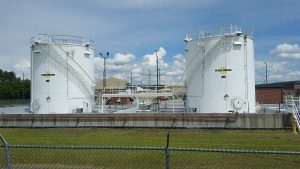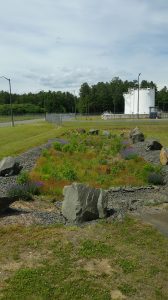WESTFIELD—Since the Air National Guard at Barnes is fully contained within the City’s Ward Six, they hosted Ward Six City Councilor Bill Onyski to provide information on the base’s practices regarding environmental issues and clean-up, as well as other information of their duties and work yesterday.
The event further explained what the missions of the Guard are in Westfield, as well as what is done if a fuel spill or other event may occur at the base. Also included was a tour of the base, with several questions being answered by members there.
“We like having community outreach,” Vice Commander of the 104th Fighter Wing Col. Peter T. Green, III, said of the event. “We are of the community, we are part of the community.”
The base, which Green said employed 1,043 personnel according to Fiscal Year 2015 numbers, covers a large area of air space, from the US-Canadian border down to a portion of Virginia. It also houses several F-15C jets, three of which are always “fully loaded” and always ready, according to Green.
To fuel those jets, environmental manager for the base John Richardson said that 200,000 gallons of jet fuel are stored at the base. In addition, 5,000 gallons of gas and diesel fuels are stored for other purposes.
And in spite of the concern of perfluorinated compounds that have found their way into the city’s water supply—which may be tied to aqueous firefighting foam (AFFF) used at the base—Green described that fuel spills are a concern that they focus a lot on.
“Fuel spills are the thing we deal with,” he said. “We don’t have enough chemicals in any capacity for spills.”
Fortunately, Green said that there has never been a large fuel spill in his recollection on the base. However, if there was, then a number of contingencies are in place to relieve the issue. The spill would be contained through certain measures and agencies like the Massachusetts Emergency Management Agency (MEMA) would be contacted to assist.
“I’ve been here 25 years and never really had a large spill,” Richardson said.
According to Green, the majority of the spills that are dealt with on the base are small. These spills occur, according to Green, when the planes “sweat” fuel on hot days. For spills of 10 or more gallons, Richardson said that the Massachusetts Department of Environmental Protection is also notified and the spill is catalogued.
“We are required to have contingency plans in place but we never had to use them,” Green said.



